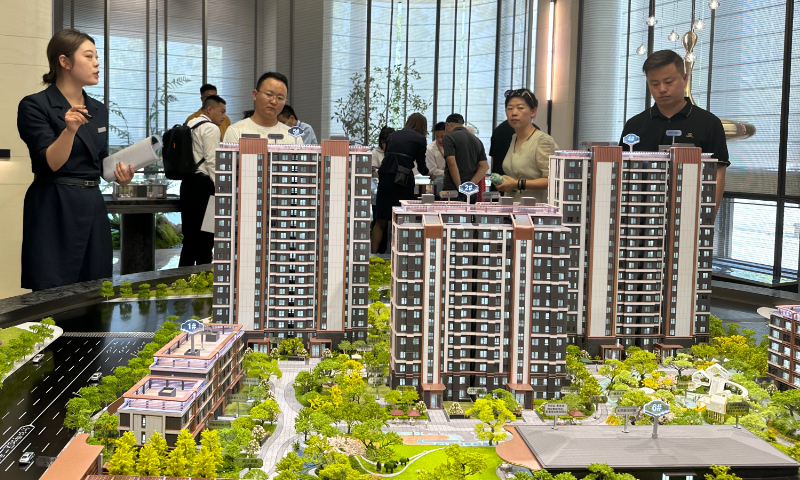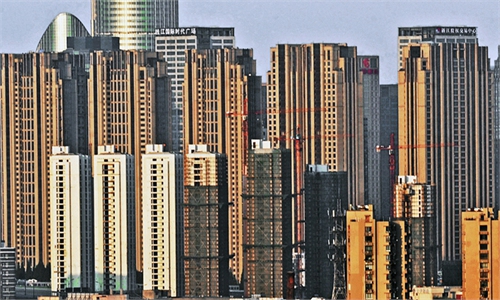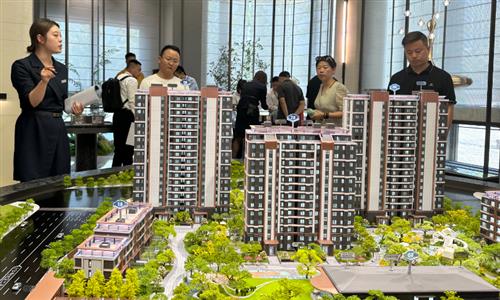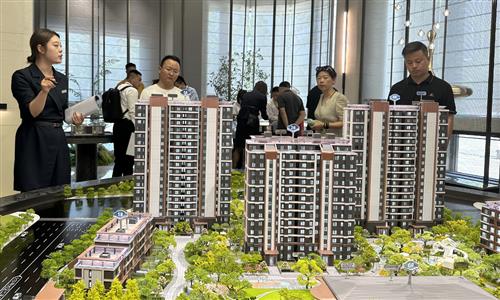

People learn about properties at a real estate sales office in Beijing on June 24, 2023. Photo: VCG
In July 2023, a meeting held by the Political Bureau of the Communist Party of China (CPC) Central Committee noted that there have been changes in the supply-demand relationship and the structure of China's real estate market under the new situation, sending a clear signal for timely adjustment and optimization of policies to promote a stable and healthy development of China's real estate market.
The optimization of government policies has to some extent helped stabilize market expectations, especially as the transaction volume of second-hand residential houses has begun to stabilize and grow.
Based on transaction data for newly-built and second-hand homes, the total demand for housing in China has not experienced a significant contraction for a time. With the adjustment of housing prices in recent years, the market efficiency between supply and demand will accelerate.
"Ensuring delivery of apartments to home buyers, people's livelihood and market stability" is a major decision made by China and a top priority guiding housing and urban-rural work in recent years.
According to data from the National Bureau of Statistics, the total completed construction area of houses and apartments in China in 2023 was 998.31 million square meters, an increase of 17 percent year-on-year. Against the backdrop of declining development and sales in some regions, the significant increase in completed construction area by real estate development enterprises has injected a shot in the arm for market expectations.
The "ensuring delivery of apartments to home buyers" has also led to a change in how developers manage their business operations.
With the smooth advancement of the "ensuring delivery of apartments to home buyers" policy, the reform process of the pre-sale system is improved. Beijing, Fujian, and other localities have successively introduced new policy measures to further strengthen the supervision of pre-sale funds for new housing projects, and implemented special account management for pre-sale funds, strictly regulating deposit and use, which effectively curbs the risk of delayed deliveries in the real estate market.
From a long-term perspective, the fundamentals of China's real estate market remain solid, with the society's overall demand for homes continuing to rise.
Currently, China is still in the midst of an accelerated process of urbanization, with significant potential for both the quantity and scale of urbanization to be improved. By the end of 2023, the urbanization rate of China hit 66.16 percent, indicating that there is still room for improvement compared with the urbanization level of the developed economies.
Improving housing demand will become a source of stable support for the property market, as a large proportion of the population now seeks to own or rent better quality housing.
China's current per capita living area has hit 41 square meters, lower than Germany's 47 square meters and the US' 67 square meters. With rapid urbanization, the imbalance between work and life becomes more prominent, and the pursuit of better location conditions and living environment has become an important aspect of housing improvement.
The 2024 Government Work Report proposes to adapt to the new trend of urbanization and supply and demand changes in the housing market, move faster to foster a new development model for real estate. Under this new development model, the real estate market in China still has a bright future for development.
The author is director of the urban and real estate economy research office at National Academy of Economic Strategy, Chinese Academy of Social Sciences. bizopinion@globaltimes.com.cn

Li Chao Photo: Chinese Academy of Social Sciences



